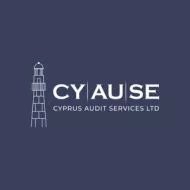In this article we will explain why Cyprus Investment Firm structures are so popular that hundreds of such companies are relocating to Cyprus. To understand how Investment Firms are taxed we must firstly separate their income streams into active and passive.
Active income is the income the investment firm receives from its day to day operations such as disposal of securities, commission income etc.
Such income is taxed under Corporation Tax at 12.5% if it is not exempted from income tax (i.e is tax free).
A. Active Income Examples and their Taxation:
Trading of securities
As the majority of Investment Firms are trading in securities which are outside the scope for Corporation Tax and VAT purposes such income is entirely tax free.
This is not the case for Cryptocurrencies as we explain in our previous articles. Learn more about Cryptocurrency taxation here.
Commission income
Commission income is taxable under Corporation Tax at 12.5%.
Typically, however, as the majority of tax is not taxable (see trading of securities above) then this Commission Income will be taxed under Corporation Tax only if if it exceeds any losses carried forward and any current company operational expenses, which is usually rare.
Therefore it is safe to assume that Active Income for Investment Firms is unlikely to be taxed (we exclude Cryptocurrencies).
B. What about Passive Income? How is it taxed?
Interest Income and similar passive income
It can be argued that interest income from long positions, dividends received are in the normal day to day (certainly semi-annual) operations of the investment firm and as such they should be taxed like normal trading income at 12.5%; i.e active income.
On the other hand, any other source of income not core to the day to day activities of the Investment Firm should be treated as passive income and such income would be subject to the Special Defence Tax and should be taxed at 17% (instead of the Corporation Tax of 12.5%).
Since the distinction between active and passive income is of great financial (tax) importance we strongly advise our clients to get a tax ruling (more information click here) for their companies so that they try (with our help) get the preferred tax treatment for the passive income which could fairly be described as active income.
C. What about Dividends Paid Out - How are shareholders taxed?
1. Cyprus Investment Firm belongs to a Group
If the Cyprus investment firm belongs to a group it will pay out its dividends to its parent tax free without any withholding taxes.
2. Cyprus Investment Firm belongs to individuals
If the investment firm pays its dividends to individuals such dividends will only be subject to Cyprus Dividend Tax (Special Defence Contribution) if the shareholders are Cyprus Tax Residents and Domiciled Persons (usually Cypriots living in Cyprus).
Shareholders from overseas residing in Cyprus should become Cyprus Tax Residents but not Domiciled (the so called Non Dom scheme) so that they are exempted from Dividend Tax. This is one of the most attractive incentive schemes created by the Cyprus Income Tax Office.
More information read more here.
D. Specific Examples on Investment Firms Trade & How they are Taxed
1. Bonus shares futures and options constitute "titles"
Should be treated in accordance with the provisions of Article 2 of the Income Tax Law, therefore any gain on the disposal of the above will be exempt from income tax, in accordance with the provisions of Article 8 (22) of the Income Tax Law. --> Tax Free.
2. Trading in Securities such as shares, futures and options
Will be tax free.
3. Dividends received from futures and shares
This depends on a case by case scenario. We display below some of the tax rulings obtained:
Dividends from futures or shares will be subject to special contribution for the defence in accordance with the provisions of Article 3 of the Special Contribution for the Defence Law;
a) Subject to 17% special defence tax unless Non-Domiciled --> No Special Defence Tax, or
b) If you have already paid tax on the dividends (at source) --> You will NOT double pay on the dividend tax more than 17% or of the amount already paid out.
If the physical person is non-dom you will pay no tax on the dividend.
Read article about non domiciled here.
4. Any interest income from bond coupons, loan provided, and promissory notes
Will be subject to income tax, in accordance with the provisions of Article 5 of the Income Tax Law.
If the main core business is trading of securities bonds etc --> Subject to Corporation Tax 12.5% .
If this interest is passive income i.e the physical or legal person holds them as investments and does not deal with passive investments --> subject to special defence tax Only (17% at present)
5. Income from discounted promissory notes
Will be subject to income tax, in accordance with the provisions of Article 5 of the Income Tax Law. --> Subject to Corporation Tax 12.5%.
Conclusion
So Why are Cyprus Investment Firms almost Tax Free?
Since the majority of Cyprus Investment Firms activities are exempted from Tax, even though some activities are subject to tax, given the operational expenses involved in running the business such taxable income (see point A above) are off-set by these expenses and as a result only some passive income may gets taxed.
Tax Exempt Activities
- disposal of securities are outside the scope and are not taxed
- interest and dividend income could be taxed only if exceed company running expenses and losses carried forward (if any)
- dividends to shareholders are usually not taxed
So Why are Cyprus Investment Firms so attractive?
Coupled the above tax benefits with low company and operational expenses and one of Europe's most attractive remuneration system for overseas employers (read more here) Cyprus is a winner and we evidence this with so many Investment Firms residing in the Republic like Revolut, FX Pro, Exness, eToro to mention a few.
To read more, have a look at some of our articles by clicking here.
Cyprus Investment Firms Regulator
The regulator of the Cyprus Investment Firms is CySEC (Cyprus Securities and Exchange Commission) who oversees all local activities and reports directly to ESMA. More information about the laws and regulations can be obtained directly from the CySEC page.
Our firm has numerous regulated entities and we perform their statutory filing requirements and consultation such as Capital Adequacy Reports, ICARA, Internal Audits etc.
We have published several articles about the Cyprus Investment Firms which can be obtained here.
Some Popular Cyprus Investment Firm
Which Companies Trusted Cyprus so far?
About Us
CYAUSE Audit Services has extensive experience in the insurance industry has helped tens of insurance brokers and agents register and get licensed by the local Cyprus regulator granting them passporting access to the rest of the European Union.
CYAUSE Audit Services is an Audit & Assurance firm with offices in Cyprus and the UAE. During 2015 we have been awarded by I.C.P.A.C and the A.C.C.A (local and international association of Chartered Certified Accountants) for the Quality of our Audit Services and our Office's Procedures.
Being a Truly International Audit & Assurance firm, we have associates from all over the world and we are constantly looking for new associates to expand our network further. At present, CYAUSE Audit Services operates internationally through its membership with BKR International amongst the largest American associations in the world, Accace Circle, a co-created business community of like-minded BPO providers and advisors who deliver outstanding services with elevated customer experience. Our network covers almost 40 jurisdictions with over 2,000 professionals, it supports more than 10,000 customers, mostly mid-size and international Fortune 500 companies from various sectors, and processes at least 170,000 payslips globally.
CYAUSE Audit Services Ltd is also a member of BKR International one of the biggest US Accounting Associations of the word and the 3E Accounting Network, an international accounting network which originates from Hong Kong and has more than 80 members from all over the world.
Learn More about Cyprus Corporate Environment
Information about CYAUSE Audit Services and the Cyprus Corporate & Tax System can be obtained from our Website or our YouTube channel which provides valuable information about the Corporate & Tax Environment of Cyprus.
The content of this article is intended to provide a general guide to the subject matter. Specialist advice should be sought about your specific circumstances.


